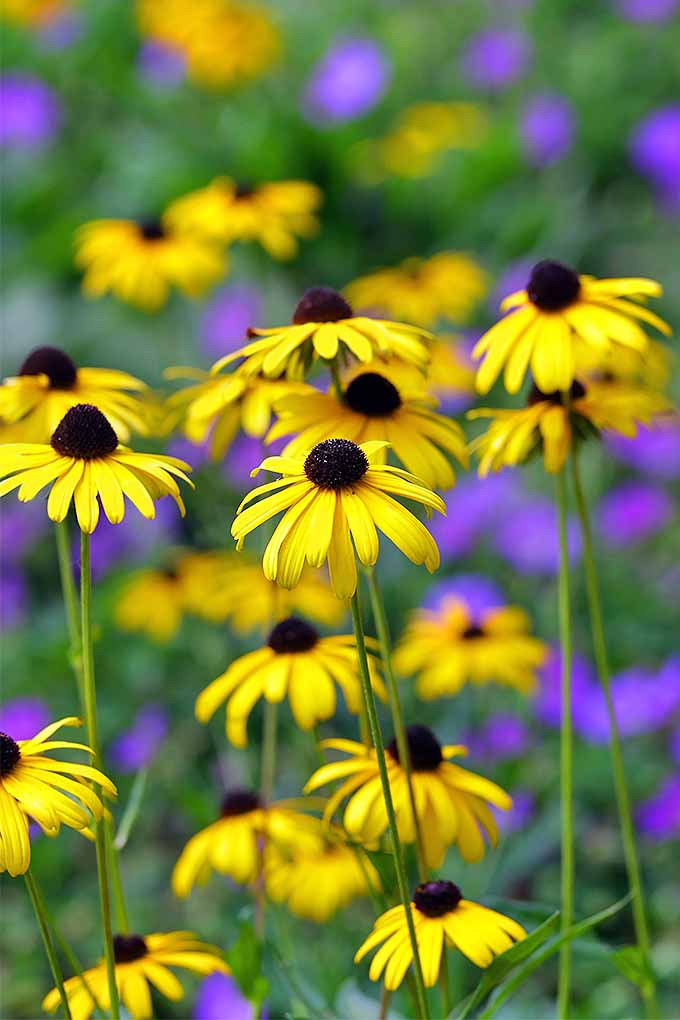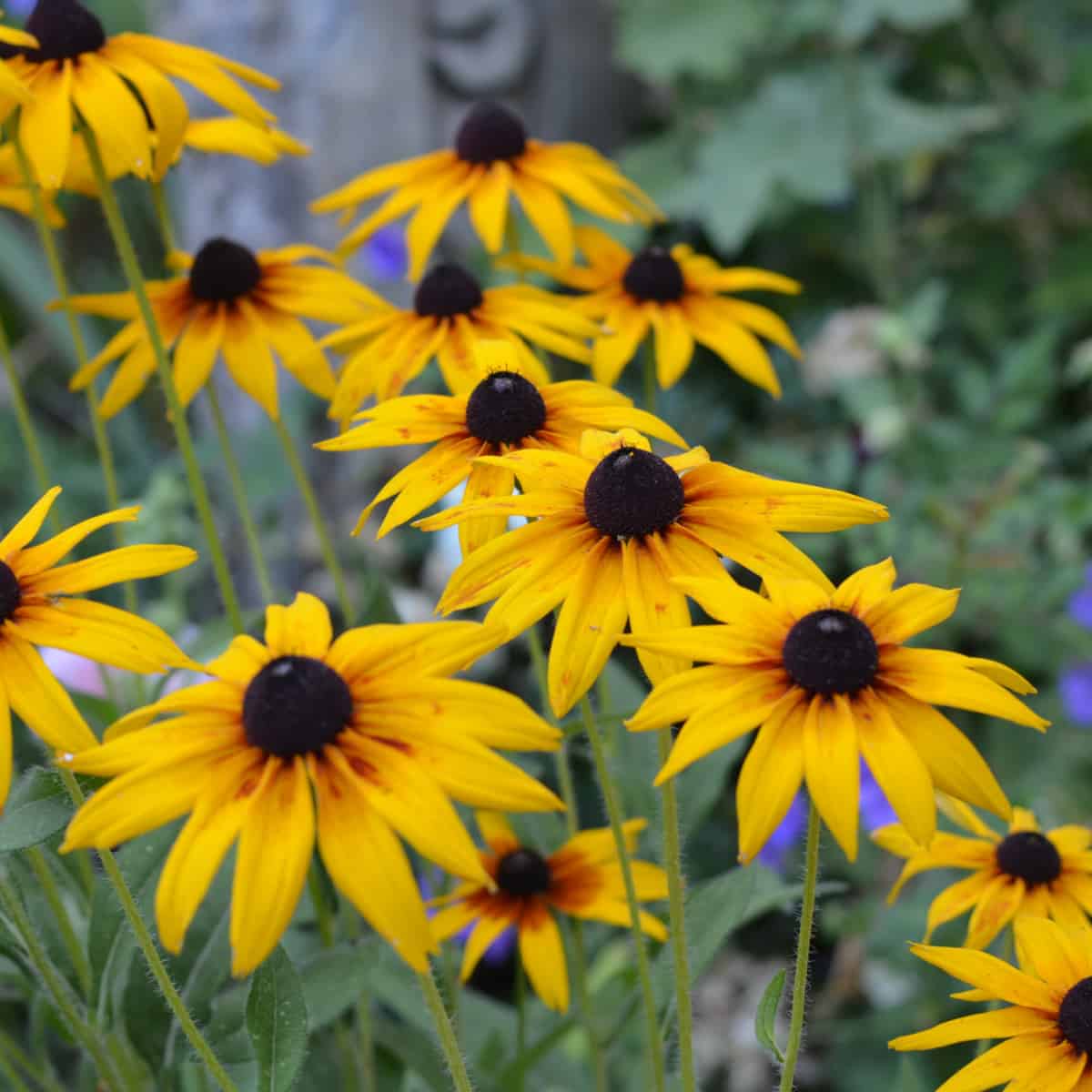Black-Eyed Susan plays host to and attracts many species of insects which in turn attract insectivorous birds. Black-eyed Susan represents important source of food and shelter for many birds and animals slugs rabbits and deer like to eat this plant.

Are Black Eyed Susans Deer Resistant Flowers
What animals eat black eyed Susan plants.

. Unlike rabbits who will eat them Rudbeckia is considered deer resistant in the garden due to their typically rough leaves and stems. Black-eyed Susan represents important source of food and shelter for many birds and animals slugs rabbits and deer like to eat this plant. You can tell when rabbits not deer have been chewing on your plants because rabbits make clean 45-degree cuts in young stems and can reach only approximately 3 feet high.
Rudbeckia Rudbeckia commonly called black-eyed Susan or coneflower is a genus of approximately 20 species of perennials biennials and annuals. Black-eyed Susan represents important source of food and shelter for many birds and animals slugs rabbits and deer like to eat this plant. Similarly you may ask what animal eats black eyed Susan.
Flea beetles make small holes and theyre hard to see but I cant say that I know them to be a pest of black eyed susans. Black-eyed Susan represents important source of food and shelter for many birds and animals slugs rabbits and deer like to eat this plant. Syrphid Fly adults drink nectar but their larvae are predators and help to control many pest insects such as aphids and whiteflies.
Black-eyed Susan represents important source of food and shelter for many birds and animals slugs rabbits and deer like to eat this plant. Silvery Checkerspot butterfly lays eggs on the black-eyed Susan leaves represent basic source of. The seeds of this flower will also attract birds including the American Goldfinch.
Generally these problems resolve themselves although your leaves may get a little tired looking before that happens. This is actually the Transverse Flower Fly a type of Syrphid Fly and a particularly common visitor on Black-eyed Susan. Do deer eat butterfly bushes.
Birds Most Commonly Attracted to Black-Eyed Susan. Silvery Checkerspot butterfly lays eggs on the black-eyed Susan leaves represent basic source of food for the caterpillars after hatching. Furthermore do rabbits eat black eyed Susan plants.
Butterfly Bush Buddleia davidii These plants are magnets for pollinatorshence their common namebut deer tend to avoid them. Lets just start this off by saying that Yes Black-eyed susans are deer resistant. This makes them unpalatable for deer and other critters.
It should be no surprise that plants with a strong fragrance or fuzzy leaves like lavender and black-eyed Susan. Deer can damage plants 6 feet high and they tear plants when eating so that the stems and leaves are ragged not cleanly cut like rabbit damage. Silvery Checkerspot butterfly lays eggs on the black-eyed Susan leaves represent basic source of food for the caterpillars after hatching.

Perennial Passion What Is Eating My Black Eyed Susans

How To Grow Black Eyed Susan Flowers Gardener S Path

Are Black Eyed Susans Deer Resistant Flowers

How To Grow Black Eyed Susans Easily Flower Patch Farmhouse

Perennial Passion What Is Eating My Black Eyed Susans

15 Nifty Plants Rabbits Won T Eat Defend Your Garden Garden Lovers Club Plants Under Trees Rabbit Resistant Plants Plants


0 comments
Post a Comment